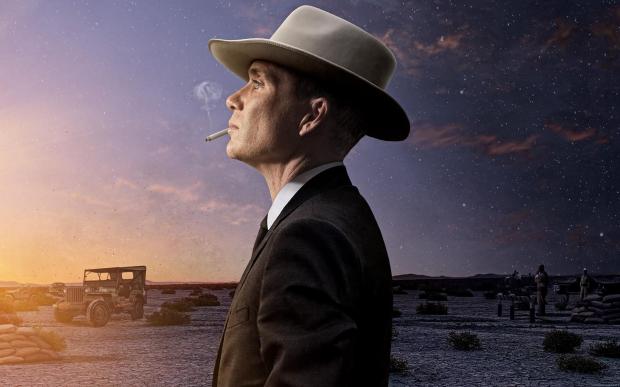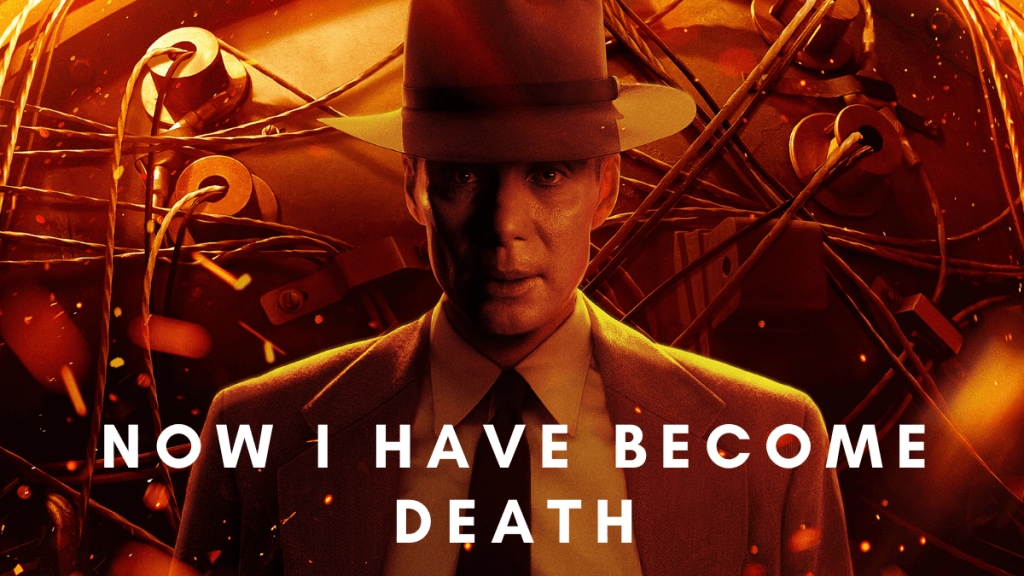Christopher Nolan’s Oppenheimer was the movie experience that would compel your head to think and would hit you after you have watched the movie. As the plot unfurled, it became a labyrinth of meaning, where scenes morphed into kaleidoscopic puzzles, teasing the depths of our consciousness, leaving us spellbound and yearning for the subtle threads of comprehension to connect.
Transported to the black hole of history, Christopher Nolan masterfully plunges us into the enigmatic world of J. Robert Oppenheimer, the architect of the atomic bomb that forever changed the course of human existence. “Oppenheimer” is a film that defies expectations and catapults Nolan to new heights, solidifying his place as one of the most important filmmakers of our time.
Not only does this movie has a literal chain reactions of nuclear fission but also in the between the scenes that would have a cascading effect on every physics enthusiasts.
As you immerse yourself in Oppenheimer, you’ll need to keep your wits sharp and your brain fully engaged, for this is intelligent filmmaking that demands your attention and respect. The score of the movie, the dialogue rushes at you, brimming with information, and the film darts back and forth through different times in Oppenheimer’s life (it ain’t a Nolan movie if it has a linear narrative for sure). In the first 15 mins you will have difficulty in remembering the characters, but fear not, as visual clues will help guide you through these shifts; you just need to catch on quickly.
Based on the book “American Prometheus,” the film delves into the life of Oppenheimer, portrayed brilliantly by Cillian Murphy. With every close-up of Murphy’s haunting eyes, we witness a man burdened by the weight of his actions, torn between his ambitious intentions and the catastrophic consequences of his creation. It’s a deep and chilling character study, making us confront the aftermath of the bombings in Hiroshima and Nagasaki and the profound guilt that plagues Oppenheimer.

Nolan’s affinity for practical effects is on full display, resulting in a cinematic marvel that eschews CGI for a raw and authentic experience. The cinematography by Hoyte Van Hoytema adds to the film’s grandeur, while Ludwig Gorranson’s captivating score intensifies the drama and turns the narrative into a gripping thriller.
The OG cast
The cast literally ate their roles. Be it Emily Blunt, Robert Downey, Matt Damon, and even Rami Malek (he had just one line) The supporting cast is equally impressive, with Robert Downey Jr.’s portrayal of Lewis Strauss standing out as one of his best career performances. Emily Blunt’s portrayal of Oppenheimer’s wife, Kitty, adds depth to the emotional turmoil experienced by those closely linked to the man who sought to create the “perfect bomb.”
Nolan’s narrative structure weaves between black and white scenes objective to everyone else and colorful shots that offer us a glimpse into Oppenheimer’s subjective perspective. The film’s relentless pace demands the full attention of its audience, but the rewards are immense, with Nolan treating viewers with great respect by presenting intelligent filmmaking that leaves a lasting impact.
With Oppenheimer, Nolan not only tells the story of an important figure in American and world history but also reflects on the timeless themes of power, responsibility, and the moral complexities of scientific progress. It serves as a poignant reminder of the repercussions of our actions and the importance of using knowledge and invention for the greater good.

The Trinity Test
The Trinity nuclear test sequence stands as a testament to Nolan’s mastery, evoking a crescendo of epic proportions that leaves the audience in awe and contemplation. Oppenheimer’s profound words, drawn from the Bhagavad Gita, “Now I am become Death, the destroyer of worlds…” resonate deeply, underscoring the haunting reality of humanity’s newfound destructive potential.
And now, the master craftsman Christopher Nolan, arguably the best blockbuster director alongside Ridley Scott, returns to the roots of no-CGI drama, where tension brews through spoken words and emotional reactions. You won’t find chases, shoot-outs, or death-defying stunts here, except for one explosion that adds a unique touch to the narrative. The score adds to the tension, sometimes beautiful, but mostly anxious and oppressive, perfectly complementing the relentless pacing.
Amidst the backdrop of political exigencies and personal relationships, Nolan tries to bind the history and all the events that happened in a 3 hour time. The film navigates through various timelines, exploring Oppenheimer’s rise to prominence, the scrutiny he faced for his past affiliations, and the unjust trials that shaped his legacy.
My reaction
My favourite scene was when after giving a promising speech to Americans who loved and hooted for him, Oppenheimer starts visualising the aftermaths of the attack on Hiroshima and Nagasaki, which was literally as if someone daggered me right through my chest.
“Oppenheimer” is a triumph of storytelling and a thought-provoking exploration of one man’s struggle with his own creation and its far-reaching consequences. The complexity hits when Oppenheimer is shown stuck in his moral scruples and his creation. It might seem to you that the father of the atomic bomb’s character is sometimes shown in an apologetic way but the more you think about it the more to understand how the ‘man you moved the Earth’ quite literally might have felt with the blood of thousands on his hand.
In the end, “Oppenheimer” is not just a biopic about a man but a profound reflection on the human condition, leaving us with an indelible mark on our consciousness and an unwavering respect for the craft of filmmaking. Christopher Nolan has delivered his magnum opus, and it will undoubtedly be remembered as one of the greatest cinematic achievements of our time. A must-watch for anyone who appreciates the art of storytelling and the power of cinema to transport us to unexplored realms of human experience.
